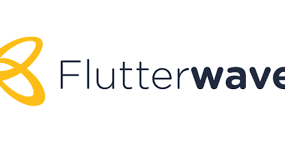Nigerian fintech companies, including Moniepoint, OPay, and PalmPay, have revamped their security and compliance strategies following a tough regulatory crackdown in 2024. After facing a six-week ban on onboarding new users due to concerns over anti-money laundering (AML) and fraud prevention, these firms have introduced stricter data collection measures and improved transaction monitoring to rebuild trust with regulators.
Strengthened Compliance Measures
The crackdown coincided with leadership changes at the Central Bank of Nigeria (CBN), which saw 18 directors, including one overseeing other financial institutions, dismissed in May 2024. The new regulatory team has been more open to collaboration with fintechs, allowing them to enhance their lobbying efforts.
In response to compliance concerns, fintechs have expanded their data-sharing practices with the Nigerian Financial Intelligence Unit (NFIU). They now provide detailed reports on politically exposed persons, suspicious transactions, fraud cases, and geo-tagged transaction data. PalmPay, with over 30 million customers, has implemented software that flags unusually large or frequent transactions for review before reporting them to NFIU. Similarly, Moniepoint now restricts access from certain high-risk countries linked to fraudulent activities.
“We do not want to be a conduit for fraud,” a fintech executive stated, highlighting the industry’s commitment to tighter security.
Enhanced Security and User Experience
Beyond compliance upgrades, fintechs have reinforced their cybersecurity measures by hiring ethical hackers to identify system vulnerabilities before criminals can exploit them. “These hackers help us stay one step ahead of criminals by exposing potential flaws in our systems,” a fintech executive explained.
User authentication has also been upgraded. Both PalmPay and OPay have introduced facial recognition for first-time users, large transactions, and transfers to new beneficiaries. Additionally, a “night guard” feature now provides extra security for transactions made after 6 p.m., a time typically associated with increased fraud risks.
While these measures enhance security, they have led to occasional disruptions for users. Some customers have reported account blocks after performing large transactions, requiring verification before access is restored. Despite these inconveniences, fintech executives insist such precautions are necessary to curb fraudulent activities.
The fintech sector’s efforts have led to a more favourable stance from regulators. Industry insiders note that agencies like the CBN and NFIU are increasingly receptive to these new security measures and reporting standards.







4 replies on “Nigerian Fintechs Tighten Security After Regulatory Crackdown”
[…] his compensation case. The issue dates back to early 2024, when the Nigerian government launched a crackdown on cryptocurrency platforms, accusing them of influencing foreign exchange […]
[…] reposition itself in Nigeria’s evolving banking landscape. But can it compete with digital-first fintechs? Here’s what you need to […]
[…] Nigerian fintech company Marasoft, founded by Emmanuel Marakwe-Ogu, has denied accusations that it paid employees with questionable funds. However, the company declined to provide supporting evidence, citing non-disclosure agreements (NDAs). […]
[…] Nigerian fintech startups are exploring cross-border transactions, lured by the promise of dollar stability. But with competition heating up, who will come out on top? The growing appetite for foreign exchange (FX) transactions among Nigerian fintechs is reshaping the remittance space. More startups are building consumer-focused FX services, offering lower fees and faster transfers. While this benefits consumers, it’s also slashing profit margins, making it harder for smaller players to survive. […]